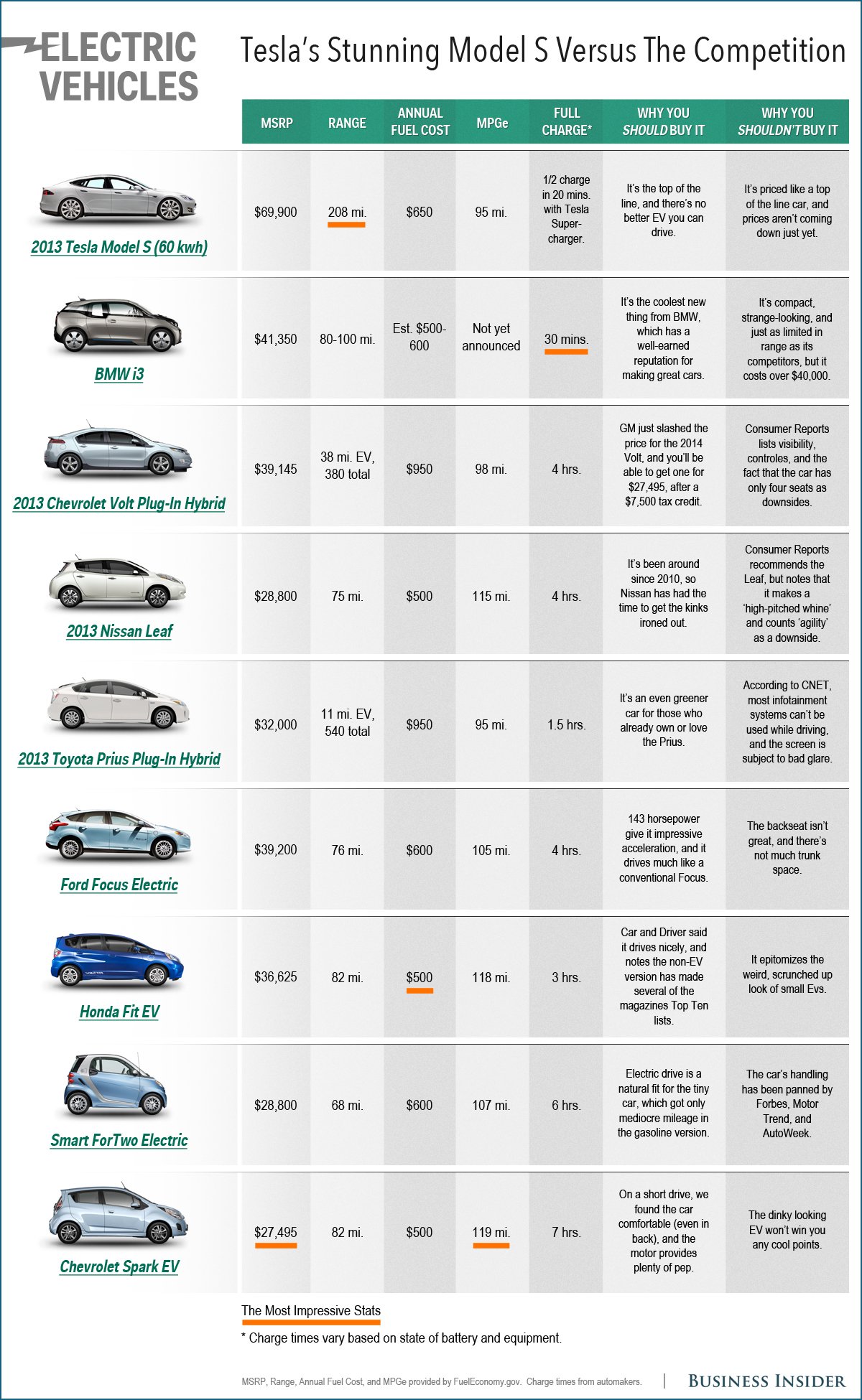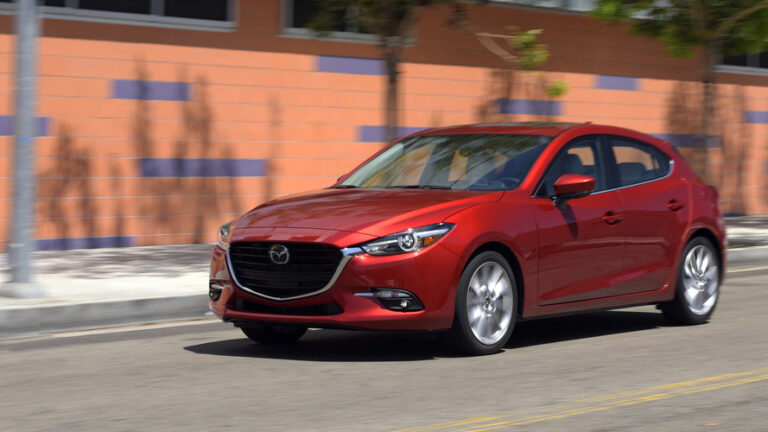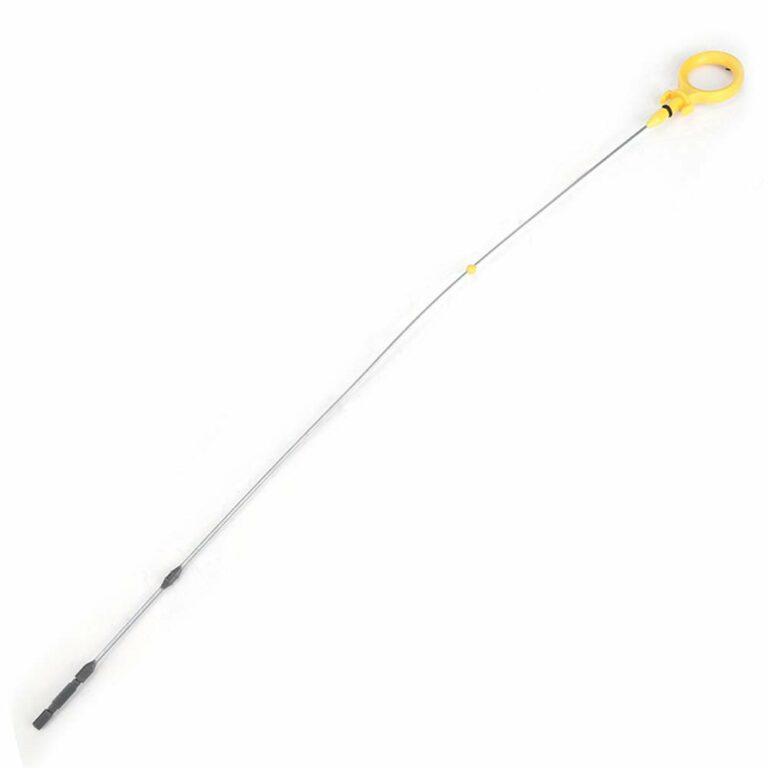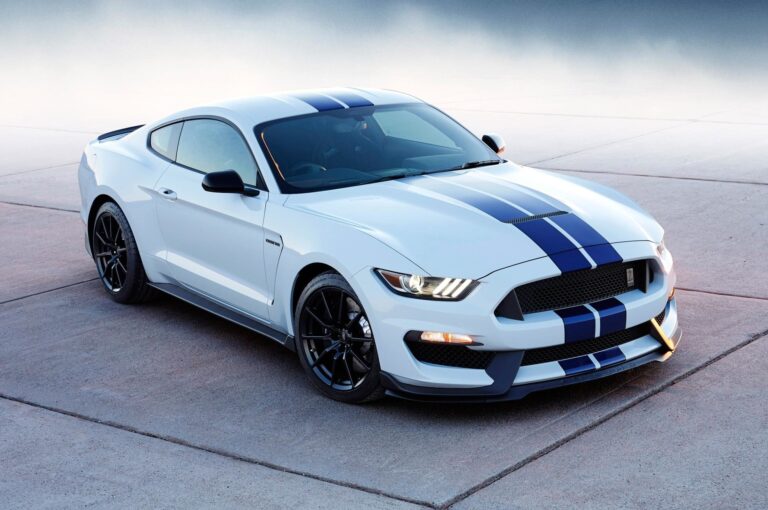Hybrid Car Brands: Navigating the Intersection of Efficiency and Innovation
Hybrid Car Brands: Navigating the Intersection of Efficiency and Innovation cars.truckstrend.com
In an era increasingly defined by environmental consciousness and the relentless pursuit of efficiency, hybrid cars have emerged as a pivotal force in the automotive landscape. No longer a niche curiosity, these innovative vehicles, which ingeniously combine traditional internal combustion engines with electric motors, have become a mainstream choice for millions worldwide. They represent a crucial bridge technology, offering the immediate benefits of reduced fuel consumption and lower emissions without the range anxiety often associated with fully electric vehicles. This comprehensive guide will delve into the world of hybrid car brands, exploring their evolution, the underlying technologies, the benefits they offer, and the leading players shaping their future.
The Dawn of Hybridization: A Brief History
Hybrid Car Brands: Navigating the Intersection of Efficiency and Innovation
While the concept of combining different power sources isn’t entirely new (early electric cars sometimes featured gasoline generators), the modern hybrid revolution truly began with the launch of the Toyota Prius in Japan in 1997, and globally in 2000. It was a bold move, introducing a complex powertrain to a skeptical public. Yet, the Prius’s undeniable fuel efficiency and lower emissions quickly won over consumers, laying the groundwork for other manufacturers to follow suit. Honda soon introduced its Insight, and gradually, what was once a single-model segment blossomed into a diverse array of vehicles spanning sedans, SUVs, and even trucks, offered by nearly every major automotive brand. This pioneering spirit cemented Toyota’s early lead and inspired a global shift towards more sustainable personal transportation.
Understanding Hybrid Technology: Types and How They Work
The term "hybrid" is broad, encompassing several distinct technological approaches. Understanding these differences is key to appreciating the diversity within the market:
-
Mild Hybrids (MHEV): These are the simplest form of hybrid. They use a small electric motor and battery (typically 48-volt systems) primarily to assist the gasoline engine, providing a slight boost during acceleration and enabling smoother start/stop functionality. MHEVs cannot power the vehicle solely on electricity but offer modest fuel economy improvements and reduced emissions compared to conventional gasoline cars. Their main advantage is lower cost and easier integration into existing vehicle platforms.

Full Hybrids (HEV): Also known as "self-charging hybrids," HEVs feature a larger electric motor and battery pack than MHEVs. They can operate on electric power alone for short distances at low speeds, typically during city driving or coasting. The battery is recharged through regenerative braking (converting kinetic energy back into electricity) and by the gasoline engine. There are two primary configurations:
- Parallel Hybrids: Both the electric motor and the gasoline engine can directly power the wheels, either independently or together. Honda’s early systems were often parallel.
- Series Hybrids: The gasoline engine acts primarily as a generator, charging the battery or powering the electric motor, which then drives the wheels. The wheels are almost always driven by the electric motor.
- Series-Parallel (Power-Split) Hybrids: This is the most common and arguably most efficient HEV design, famously perfected by Toyota. It uses a planetary gear set to seamlessly blend power from the engine and electric motors, optimizing efficiency across various driving conditions.

-
Plug-in Hybrid Electric Vehicles (PHEV): Representing a significant step towards full electrification, PHEVs combine a gasoline engine with a much larger battery pack and a more powerful electric motor. Unlike HEVs, PHEVs can be plugged into an external power source (like a wall outlet or charging station) to fully recharge their batteries. This larger battery allows them to travel significant distances (typically 20-50 miles or more) on electric power alone, making them ideal for daily commutes without using any gasoline. Once the electric range is depleted, the vehicle operates as a traditional full hybrid, seamlessly switching to gasoline power and regenerative braking.
-
Range-Extended Electric Vehicles (REEV): While less common now, REEVs are essentially electric vehicles with a small gasoline engine acting purely as a generator to extend the electric range once the battery is depleted. The gasoline engine never directly powers the wheels. The Chevrolet Volt was a prominent example of this type.
Key Benefits of Owning a Hybrid Car
The appeal of hybrid vehicles extends beyond just being "green." They offer a compelling blend of practical advantages:
- Superior Fuel Efficiency & Cost Savings: This is often the primary driver for hybrid adoption. By leveraging electric power, especially in stop-and-go city traffic, hybrids significantly reduce gasoline consumption, leading to fewer trips to the pump and substantial long-term fuel cost savings.
- Reduced Emissions & Environmental Impact: Burning less gasoline directly translates to lower tailpipe emissions, including greenhouse gases and smog-forming pollutants. This makes hybrids a more environmentally friendly choice than conventional gasoline vehicles.
- No Range Anxiety (Compared to Full EVs): Unlike pure electric vehicles that require charging infrastructure and can suffer from "range anxiety," hybrids offer the best of both worlds. The gasoline engine provides peace of mind, ensuring you can always refuel at any gas station, regardless of electric charging availability.
- Smooth and Quiet Driving Experience: At low speeds or during electric-only operation, hybrids are remarkably quiet. The seamless transition between electric and gasoline power, often aided by continuously variable transmissions (CVTs), provides a smooth and refined driving experience.
- Potential Government Incentives: Many governments offer tax credits, rebates, or other incentives (like HOV lane access) for purchasing hybrids, particularly PHEVs, further reducing the effective cost of ownership.
- Strong Resale Value: Hybrids, especially those from reputable brands known for reliability, often hold their value well due to sustained demand for fuel-efficient vehicles.
Leading Hybrid Car Brands and Their Offerings
Virtually every major automaker now offers hybrid models, but some brands have distinguished themselves through their commitment, innovation, and breadth of offerings.
-
Toyota (and Lexus): The undisputed pioneer and market leader. Toyota’s "Hybrid Synergy Drive" system is renowned for its reliability, efficiency, and seamless operation.
- Key Models: Prius (the iconic hybrid), Camry Hybrid, RAV4 Hybrid, Highlander Hybrid, Corolla Hybrid, Sienna Hybrid.
- Lexus (Luxury Division): Offers a wide range of luxury hybrids, including the RX Hybrid, ES Hybrid, LS Hybrid, and the innovative LC 500h. Lexus hybrids emphasize refined performance and premium features alongside efficiency.
-
Honda: A long-standing competitor to Toyota, Honda has also invested heavily in hybrid technology, often with its unique parallel hybrid systems.
- Key Models: CR-V Hybrid, Accord Hybrid, Civic Hybrid, and the Insight (though recently discontinued, it was a long-running hybrid staple).
-
Hyundai and Kia: These South Korean sister brands have rapidly expanded their hybrid and EV portfolios, offering compelling value and modern designs.
- Key Models: Hyundai Elantra Hybrid, Sonata Hybrid, Tucson Hybrid, Santa Fe Hybrid; Kia Niro (available as HEV, PHEV, and EV), Sorento Hybrid, Sportage Hybrid. Their PHEV offerings are particularly strong.
-
Ford: America’s second-largest automaker has embraced electrification across its lineup, including popular hybrid versions of its trucks and SUVs.
- Key Models: Maverick Hybrid (compact pickup), Escape Hybrid, Explorer Hybrid, F-150 PowerBoost (a full-size hybrid pickup, demonstrating hybridization in a traditionally gas-guzzling segment).
-
BMW, Mercedes-Benz, Audi (Luxury European Brands): While they arrived later to the mass-market hybrid party, these brands have focused heavily on performance-oriented and luxury PHEVs. Their offerings provide potent power combined with significant electric-only range, catering to a premium segment.
- Key Models: BMW X5 xDrive45e, 330e, 530e; Mercedes-Benz C300e, E350e, GLE 450e; Audi Q5 TFSI e, A7 TFSI e.
-
Volvo: A leader in safety and design, Volvo has committed to electrifying its entire lineup, with many models available as PHEVs (often denoted by "Recharge"). They offer excellent electric range and powerful performance.
- Key Models: XC60 Recharge, XC90 Recharge, S60 Recharge, S90 Recharge.
Choosing the Right Hybrid: Important Considerations
Selecting the ideal hybrid involves more than just picking a brand. Consider these factors:
- Driving Habits: If most of your driving is city-based, a full hybrid (HEV) or even a PHEV (if you can charge at home) will maximize your fuel savings. For predominantly highway driving, the efficiency gains of a hybrid are less pronounced, but still present.
- Budget: Hybrids typically have a higher upfront cost than their conventional gasoline counterparts. However, factor in potential fuel savings, government incentives, and lower running costs to assess the total cost of ownership. PHEVs are generally more expensive than HEVs due to their larger batteries.
- Charging Availability (for PHEVs): If you’re considering a PHEV, assess your ability to charge at home or work. This is crucial to fully realize the electric-only benefits and maximize fuel savings.
- Vehicle Size and Type: Hybrids come in all shapes and sizes. Determine if you need a compact sedan, a family SUV, or even a pickup truck, and then explore the hybrid options within that category.
- Brand Reputation & Reliability: Research brand reliability ratings, particularly for hybrid components. Toyota and Lexus consistently rank high in this regard.
- Resale Value: While generally strong, certain models or brands may hold their value better than others.
Maintaining Your Hybrid Car
Maintaining a hybrid vehicle is largely similar to a conventional car, but with a few unique considerations:
- Regular Service: Follow the manufacturer’s recommended maintenance schedule for oil changes, tire rotations, and fluid checks.
- Hybrid System Checks: Dealers will have specialized diagnostic tools to check the health of the hybrid battery and electric motor system during routine service.
- Battery Longevity: Modern hybrid batteries are designed to last the life of the vehicle, often 150,000 to 200,000 miles or more. Most come with long warranties (e.g., 8 years/100,000 miles, or even 10 years/150,000 miles in some states).
- Brake Wear: Hybrids utilize regenerative braking, which uses the electric motor to slow the car and recharge the battery. This reduces wear on the conventional friction brakes, often leading to longer brake pad life.
The Future of Hybrid Technology
While full electric vehicles are often touted as the ultimate future, hybrids are far from obsolete. They will continue to play a vital role in the transition to a fully electric automotive world. Expect to see:
- Improved Battery Technology: Lighter, more energy-dense, and cheaper batteries will enhance efficiency and electric range for both HEVs and PHEVs.
- More Sophisticated Powertrains: Further integration of electric motors, more efficient engines, and advanced software will continually optimize performance and fuel economy.
- Broader Application: Hybrids will continue to appear in more vehicle segments, including heavy-duty trucks and performance cars, as manufacturers seek to meet increasingly stringent emissions regulations.
- Smart Charging and Grid Integration (for PHEVs): PHEVs will become more integrated with smart grids, potentially allowing owners to charge when electricity is cheapest or even feed power back to the grid.
Practical Advice and Actionable Insights
- Define Your Needs: Before looking at specific models, honestly assess your daily commute, typical driving distances, and access to charging (if considering a PHEV).
- Test Drive, Test Drive, Test Drive: Experience different types of hybrids (HEV vs. PHEV) and models from various brands. Pay attention to how they accelerate, brake, and transition between power sources.
- Calculate Total Cost of Ownership: Don’t just look at the sticker price. Factor in potential fuel savings, insurance costs, maintenance, and any available government incentives or tax credits.
- Check Warranties: Pay close attention to the warranty on the hybrid components, especially the battery, as this is the most expensive part to replace.
- Research Reliability: Consult reputable consumer reports and automotive reliability surveys to understand the long-term dependability of specific models and brands.
Hybrid Car Brands: Representative Model Information & Starting MSRP Ranges
Please note: Prices are approximate starting MSRPs for base models and can vary significantly based on trim level, options, region, and market conditions. This table is for illustrative purposes only.
| Brand | Representative Model | Hybrid Type | Key Feature / Benefit | Starting MSRP Range (Approx.) |
|---|---|---|---|---|
| Toyota | Prius | HEV | Iconic efficiency, legendary reliability | $29,000 – $37,000 |
| Toyota | RAV4 Hybrid | HEV | Popular compact SUV, AWD available | $32,000 – $41,000 |
| Toyota | Camry Hybrid | HEV | Mid-size sedan, comfortable, efficient | $29,000 – $35,000 |
| Honda | CR-V Hybrid | HEV | Versatile SUV, strong performance | $34,000 – $41,000 |
| Honda | Accord Hybrid | HEV | Spacious sedan, refined driving | $33,000 – $39,000 |
| Hyundai | Tucson Hybrid | HEV/PHEV | Stylish SUV, feature-rich, good value | $32,000 – $45,000 |
| Kia | Niro | HEV/PHEV | Crossover flexibility, excellent MPG | $28,000 – $40,000 |
| Ford | Maverick Hybrid | HEV | Compact pickup, impressive fuel economy | $24,000 – $30,000 |
| Ford | F-150 PowerBoost | HEV | Full-size truck, Pro Power Onboard | $58,000 – $80,000+ |
| BMW | X5 xDrive45e | PHEV | Luxury SUV, strong electric range | $73,000 – $80,000+ |
| Volvo | XC60 Recharge | PHEV | Premium SUV, safety, elegant design | $59,000 – $70,000+ |
| Lexus | RX 450h+ | PHEV | Luxury mid-size SUV, refined ride | $70,000 – $75,000 |
Frequently Asked Questions (FAQ)
Q1: Are hybrid car batteries expensive to replace?
A1: While replacement can be costly (several thousand dollars), it’s rarely needed. Modern hybrid batteries are designed to last the life of the vehicle, often exceeding 150,000-200,000 miles. Most manufacturers offer long warranties (8-10 years/100,000-150,000 miles) covering the battery.
Q2: How long do hybrid car batteries last?
A2: Typically, hybrid car batteries are designed to last for 10 to 15 years or more, often exceeding the lifespan of the vehicle itself. Factors like extreme temperatures, frequent deep discharging, and aggressive driving can affect longevity, but generally, they are very durable.
Q3: Do hybrid cars need to be plugged in?
A3: It depends on the type.
- Full Hybrids (HEV) do not need to be plugged in. They recharge their batteries through regenerative braking and the gasoline engine.
- Plug-in Hybrid Electric Vehicles (PHEV) do need to be plugged in to fully utilize their electric-only range. While they can operate as regular hybrids after their electric range is depleted, plugging them in maximizes their efficiency.
Q4: Are hybrid cars good for long drives?
A4: Yes, hybrids are excellent for long drives. Unlike full EVs, you never have to worry about finding a charging station. The gasoline engine ensures you can refuel anywhere. While the fuel efficiency benefits are most pronounced in city driving, hybrids still offer better highway mileage than comparable non-hybrid vehicles.
Q5: Are hybrid cars reliable?
A5: Yes, generally very reliable. Brands like Toyota and Lexus consistently rank among the most reliable car manufacturers, and their hybrid systems are particularly robust. The reduced strain on the gasoline engine (due to electric assist) and features like regenerative braking (reducing brake wear) can even contribute to lower overall maintenance issues compared to conventional cars.
Q6: Is maintenance more expensive for hybrids?
A6: Routine maintenance for hybrids is often comparable to, or even slightly less expensive than, conventional gasoline cars. As mentioned, regenerative braking extends brake pad life. While specialized hybrid components exist, they are designed for longevity, and overall service costs are competitive. The main potential high-cost item, battery replacement, is rare.
Q7: Do hybrids save money?
A7: Yes, hybrids generally save money over the long term, primarily through reduced fuel costs. While they might have a higher initial purchase price, the savings at the pump, potential government incentives, and often lower maintenance costs can lead to a lower total cost of ownership over several years compared to a non-hybrid equivalent.
Conclusion
Hybrid car brands have firmly established their place in the automotive world, offering a compelling blend of environmental responsibility, economic practicality, and driving refinement. From the pioneering efforts of Toyota to the diverse and sophisticated lineups offered by Honda, Hyundai, Ford, and luxury marques, there’s a hybrid for nearly every need and budget. They represent an intelligent and pragmatic choice for consumers looking to reduce their carbon footprint and fuel expenses without compromising on convenience or range. As the automotive industry continues its march towards electrification, hybrid vehicles will remain a vital and evolving segment, serving as a testament to innovation and a critical stepping stone towards a more sustainable future.






